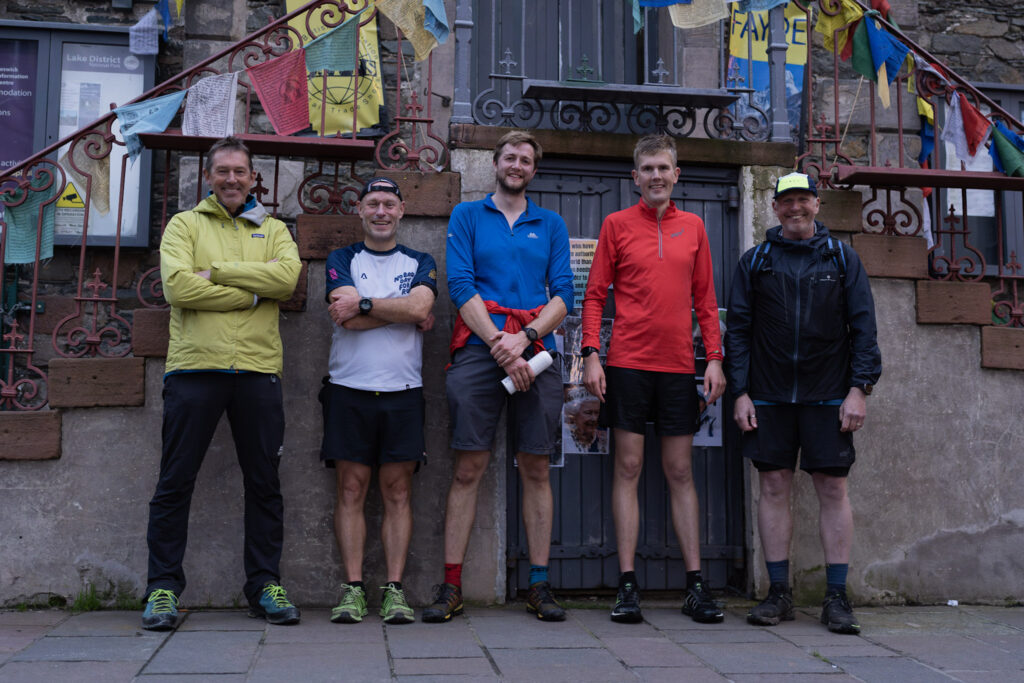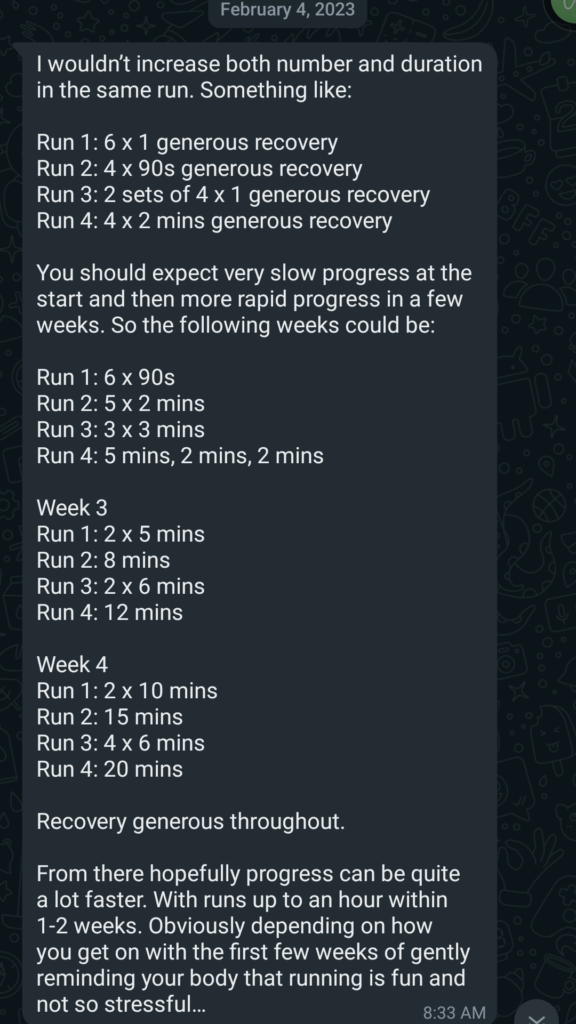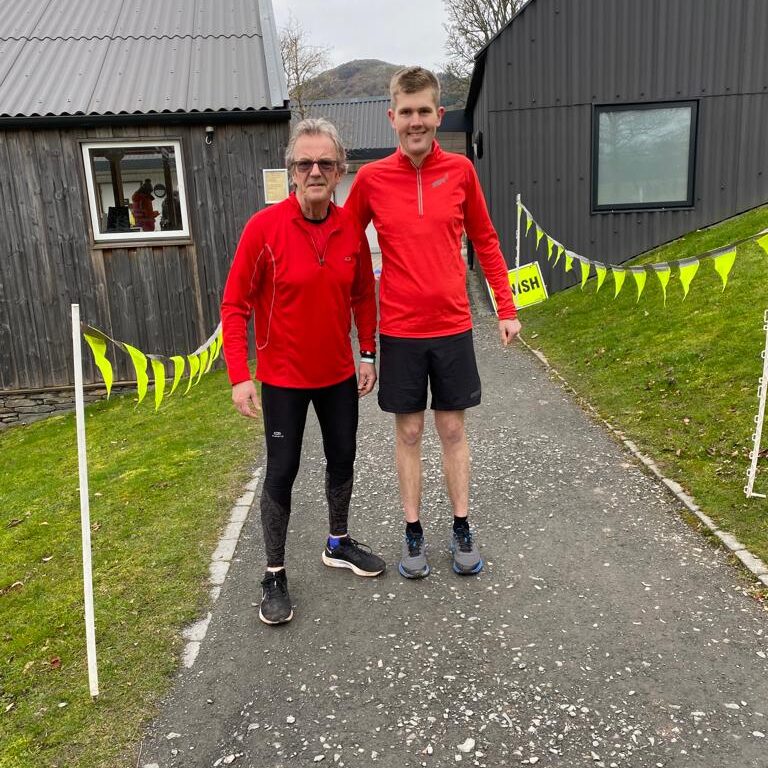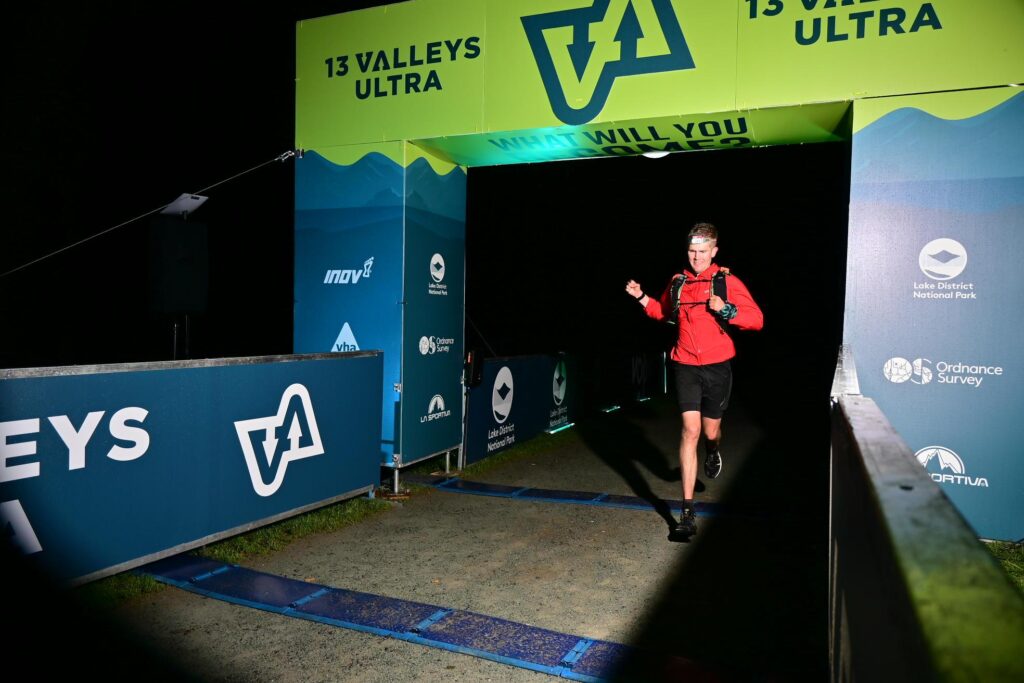Trust the Process: How I beat Long Covid
Trust the Process: How I beat Long Covid
Last week we launched the film ‘Head Above Water’ by Garth Dew which documented my journey with Long Covid, how open water swimming kept my head above water (literally), and the comeback to the adventures and challenges that define me.
I was gratefully reminiscing how these hopeless days were now safely confined to a film instead. At the film launch I was pleased to see a local runner and Covid long-hauler who I’d met a few months earlier for coffee and to share advice – but unfortunately she still wasn’t out of the woods. In contrast, the next morning I had a LinkedIn message from a fellow adventurer in Australia asking for advice, feeling they might never recover – but how recovery stories offered her a glimmer of hope for future adventures.
I could empathise – having been in the same place only 18 months earlier – desperate for clues or anything remotely possible that might change my predicament. But it struck me that this might be in the past for me, whilst many others are still struggling and forgotten.
To cover such a complex issue in the necessary detail would probably need an investigative Netflix series, so I decided to write this blog about what worked for me, in the hope it might help others, too.
Even if you’ve been fortunate enough not to experience Long Covid, this post will hopefully offer helpful insight for anyone dealing with a long-term health condition, or any general periods of uncertainty or transition in life. So please read on.
I should caveat that I’m not a medical professional. I’m squeamish and terrified of doctors. None of this should substitute medical advice (although there still seems to be very little available). I’m simply sharing what helped me, which may not work for everyone.
Context
I contracted Covid for the first and only known time in early April 2022. This was complicated by the fact I’d just ran 105 miles about two days earlier. Most likely I’d caught it somewhere on the route and the various handshakes, hugs, shared food and supplies – it was almost inevitable. A few of my support runners also got ill a few days later, but recovered much more quickly.

I had a fairly mild infection. I started to feel like I was coming down with something. I woke abruptly in the early hours shivering, with a raw throat, throbbing headache, and just knew. I tested immediately and was hardly surprised to see the double red lines. Bugger. At least it happened after the run…
I was testing positive for 12 days, so clearly had a high viral load. But felt much better within a few days, and was mostly symptom free, able and eager to walk alone in the sunshine once no longer contagious. Once clear I then booked a last-minute holiday to the Faroe Islands, hoping the break would kickstart my recovery, and like other fit athletes (I was 26) I’d take some rest then be straight back to it.
With my coach Sophie’s careful watch, I was running an easy 10km by the end of that trip. On the 4th May it all came crashing down. One run had a few short fast bits, which was actually an error on my Training Peaks system. It hadn’t been scheduled this soon. The next day I felt like on deaths door, propped up by Lemsip and cough sweets. It was worse than the initial infection. At the time I hadn’t realised I’d probably just thrown myself to the alligators. After a few days, I eased back in again, but it felt different now. During runs I’d have a streaming runny nose, itchy eyes, sore throat, headaches and a general tiredness soon afterwards. The summer became a Russian roulette of stop-start running, and symptoms that often seemed as random as the Lakeland weather. Random bursts of muscle and joint aches, chest pains, palpitations, costochondritis (inflamed/stiff rib cage), brain fog, disturbed sleep, excessive fatigue, inability to maintain body temperature (shivering or sweats). One day I even managed to leave my car in town and walk the mile home before realising.
The common factor is that it was always triggered by exercise, or ‘Post-Exertional Malaise’ a.k.a. PEM. But I wasn’t exactly racing half marathons. I had gently tried easing back in with a run/walk, then 5 mins, then 10 mins, and so on, monitoring my heart rate to keep in zone 2 or below. My body itself felt fine during the runs. But it just didn’t feel right and I’d pay the price that night or the following day. It wasn’t even exercise after a while – even long days of travel, an early start, or work stress could trigger similar effects. Others were effectively disabled, house-bound or off work. Fortunately I was not. As an endurance athlete I’m used to pushing through. But I wasn’t living how I wanted to either…
Knowledge is Power
Tests ruled out any underlying issues. I was checked for POTS (postural orthostatic tachycardia syndrome). Every potential cause was explored. I even paid for a cardiac echo scan privately. But there’s a very careful balance to strike here. I was incessantly reading everything I could, and listening to books and podcasts to try and find the golden nugget I hadn’t yet tried. There was a full spectrum of people who were effectively disabled by the condition, and those who had fully recovered and moved on, with very few in between. Subsconsciously I tended to latch on to those who had been suffering for 2+ years in the horror that I may find myself here, too. There were online groups of sufferers which seemed more like an echo chamber of resentment, shooting every glimmer of hope down in flames. This wasn’t a good place to spend my limited energy levels. One very reliable source was Gez Medinger who was also a Covid long-hauler, and had turned his journalistic talent into a force for good. Thank you, Gez. The key is to make sure you’re getting information from reliable and neutral sources, that aren’t trying to flog you some snake oil, and ideally in small doses.
Waiting for things to improve by good fortune and time didn’t sit well with me – being proactive could make the difference between weeks and years. Unfortunately the NHS Long Covid recovery service was very quick but effectively could do nothing but tell us to rest a bit longer. It seemed to be more geared for those with more severe cases, or with actual organ damage caused by the virus. Yet there was a large cohort of people like me, who were generally fit and active, had mild infections with no physical markers, but still had ongoing symptoms. So clearly Long Covid had a number of systems at play.
Build your support team
This was the most crucial element of recovery. Covid was the most isolating experience of my life. My family often asked whether this was all in my head, considering I looked fine, my tests were clear, and I could still do most things and work as normal – except exercise. Often I questioned my own sanity, too. Friends were supportive but helpless, and I quickly withdrew, feeling like the old record with nothing else to talk about.
I was fortunate to be introduced to two local endurance runners who were on the same page. One had caught Covid in early 2020 and suffered much more severely for over two years, when knowledge was so minimal, but was now recovered and felt stronger and faster than he was pre-Covid. The other had been infected a similar time to myself – but was making progress and already back on the fells. These two could have been anomalies to the rule, but they were all I had, so I focused my attention on them. They gave me hope and hope is all we really need. I’m forever grateful for their generosity.
In the early days I’d contacted a sports and exercise specialist, Dr Rebecca Robinson, a top international runner herself – who empathised with the uncertainty and turmoil. Her experience with Chronic Fatigue patients was especially helpful and relevant. Just having someone to troubleshoot different symptoms and see the bigger picture as a person AND athlete was immensely reassuring.
Control the controllables
There will always be things outside of our control. That’s a scary fact of life. In this case, so much of it felt outside of my control. Normally with an injury you can at least see a physio and get a timescale and rehab plan. Eventually I had to surrender that this was going to be a long haul, to cancel my upcoming races, and only then I could be guided by my body rather than my calendar.
I also learnt, from speaking to the others, how much a Type A personality played a part. The drive to achieve and perform was hampering my ability to slow down and recover. But slowing down was easier to accept when it became part of the process – and keeping my future comeback in mind.
Through the summer I swapped running and cycling with swimming and dipping around the Lake District every day. This didn’t seem to worsen the situation – it was the opposite. It brought a sense of hopefulness, reduced anxiety, built a new community (whilst mine were mostly out racing and achieving stuff) and something to look forward to. For once, I was IN nature rather than racing through.

Mindset
After so many false hopes and setbacks I was afraid to even try exercising again. You become so hyper-vigilant about your symptoms that you almost entice them. The great book ‘The Way Out’ by Alan Gordon introduces the idea of a negative feedback loop and why CBT is often recommended for chronic fatigue type conditions. Many suffering with ME/CFS are highly critical of such ideas, and of course I don’t believe you can just ‘think’ your way out of a chronic condition either. But I’ve always believed that to achieve any outcome in life, you absolutely need to have a positive and open mindset towards recovery, otherwise you shut the door in your face. On my previous attempts to start running this was the missing element and probably why it failed. I needed to reframe my mindset and not panic every time the slightest symptoms emerged, otherwise I’d probably never run again.
Before attempting a run, I’d find myself in the car (driving to get somewhere flat), shaking and heart pounding as I anxiously anticipated the potential crush of a setback. Breathwork was a key tool here. I started using the free Breathwork app and now routinely do this first thing when I wake up, and before bed too. It helps to calm the autonomous nervous system and the ‘fight or flight’ response which is thought to potentially trigger the immune system and therefore symptoms of Long Covid.
Stress is stress
One of the best analogies that Rebecca shared was ‘being a golf ball in a bunker – when you’re almost clear, you fall back in’. It didn’t take much to fall back in either.
In August I spent two weeks on holiday in Canada. Incidentally I finally started to feel like my old self again, with the stresses of life stripped to a minimum level, and I did a lot of hiking and wild swimming whilst there. I felt ready to try again with a gradual return to running in early September. I started over, a few minutes of run/walk, before 5km in one go a few weeks later. I almost enjoyed the runs until I found myself lying at home with the symptoms flaring again. At the end of October I was up to running 30-40 minutes, but felt awful without any sign of improvement. This time I was getting crushing fatigue where I couldn’t even be bothered getting off the sofa to bed. Eventually I concluded this wasn’t working. Stupidity is doing the same thing over and over again expecting a different result.
One thing I hadn’t tried was a proper long rest, like the other runners had done. I’d been kidding myself to this point, and Covid required a whole new definition of rest: not just from exercise. The body only knows stress. Moving house probably didn’t help either. I decided to stop attempting to run for at least 2 months. This seemed incomprehensible in the summer, yet I had no fitness to lose now anyway.
Luckily I’m self-employed and live alone, which enables a lot of flexibility over my time and routine. Whenever I had a busy day – such as a speaking event, long journey or meetings – I would plan for an easy day afterwards. My usual midnight bedtimes changed. I set no morning alarms in favour of 10-11 hours sleep. I cut my caffeine intake to 3 cups of coffee a day. Instead of rushing from one thing to the next, I planned recovery time after – to just sit down, read, breathwork, browse the web. No more back-to-back Zoom calls, and social meetings were spread out (or skipped altogether). Adding one thing meant removing another. I hated it, but this was a temporary step to getting clear of the bunker for good.
At the same time, creating such idleness left me in a deep winter depression, withdrawing and sometimes crying in frustrated despair (no shame, guys). Fortunately for my sanity I was still able to walk in the hills, with the low intensity rarely worsening any symptoms, but these longer weekend Wainwright walks still required careful energy management into the week ahead. Most days I still walked 30-60 minutes (or swims – until October). I found a lot of gratitude in these little moments, and I don’t think complete rest would have helped at all.
Sum of the small parts
For all the bits that couldn’t fit in above… I took over-the-counter anti-histamine drugs called Allevia almost religiously every day since the start, which were one of the few things that seemed widely accepted to reduce symptoms. I also took DiRibose powder and Acetyl n-Carnitine when I started to resume exercise again, which are thought to help with ATP production (Chronic Fatigue is thought to be linked to mitochondrial dysfunction) and Magnesium powder to help with energy levels. Inevitably it’s hard to pinpoint any holy grail, but I think it’s always a combination. I tried swapping Allevia for more powerful prescription anti-histamines but symptoms worsened, so I switched back.
Trust the Process
In late December I had inguinal hernia repair surgery which forced my hand to rest properly for 4 weeks. My biggest fear was that Long Covid was some underlying cardiac complication, which had been the case for some athletes, but I eventually got a 24-hour ECG and saw a cardiologist in January with inconclusive results, who shrugged his shoulders and said:
“There’s no reason you can’t try building up again… but there’s no guarantee you’ll ever get back to where you were. Hopefully, with time, you should start to see some improvements”.
That line ‘no guarantee’ that really irked me. “Watch this!” I thought. He had inadvertently turned this into a challenge, and I wasn’t prepared to lose it.
Spring was also approaching, and one of the fellow Long Covid proteges told me about the power of working with the seasons. Spring is a time for nature renewal and I felt hopeful too. It felt like the stars were aligning, and this time it was happening for real. To be honest, I decided it had to: I couldn’t have another year like the last.
With the ever-careful watch of my coach, Sophie, we began a ‘Couch to 5km’ process in February. But this time I was committed. I screenshotted this message from February 2023, which feels poignant now…

To accommodate this new stress of training I continued managing energy very carefully. Having a day on and day off allowed me to monitor any reaction – which usually came a day later – before chucking more petrol on the fire. Inevitably there was usually a runny nose, slightly sore throat, fatigue, or body aches. But instead of slamming on the brakes like usual, I reminded myself that I was safe – and my body needed time to adapt and tolerate the stress of exercise again. That didn’t mean doggedly following the plan regardless. Sometimes symptoms were too loud that we had to dial it back, take an extra rest or shorten the planned session. One of the runners reminded me to spot the overall trend over the month instead of one particular bad run. Were things generally improving, or at least staying the same? It was hard to listen to my body when it seemed to be singing from a different hymn sheet, but there were always signs.
I live in the Lake District so there’s not much flat around here. Many runs were on the same boring river loop, but discipline won the race. It also meant walking at the slightest incline to keep my heart rate down. The aim was to train the body to tolerate exercise again without going into fight or flight mode.
By early March I did my first Parkrun, and my longest run in almost six months. I kept my heart rate strictly in Z2, which meant letting dad disappear into the distance. He’ll never let me forget that one! It was painful to finish in 28:55, considering I’d got my PB of 17:55 twelve months earlier… but I was grateful.

The day after my body wasn’t happy. I felt unwell again, started getting chest pains, suffered a bad panic attack, and had to pull out of a family meal that evening. This meant a few days off before trying again.
Fortunately it was an upward trend from there. The intervals became longer, I could run further without my heart rate spiking. Things progressed quite quickly. I committed the date for the Frog Graham Round because I believe in the power of setting intentions – it’s like your body knows what it’s required to do. I remember my first hill run in April. It was walk up, run down. But I was absolutely beaming.
The Comeback – part 3
By June I was able to complete what felt like ‘proper’ training runs of 2-3 hours, without feeling like I was going to pay for it. But I still wasn’t out of the woods. After a long recce of Frog Graham Leg 2 on a Saturday, I was physically and mentally exhausted by Sunday. I remember being so mentally frazzled it took 15 minutes to choose a sandwich in the Co-Op, and I managed to reverse my car into a boulder. But now I wasn’t going back to square one. I just needed a couple of days off to tip the balance, and it would be OK again. This was the compromise for being able to do what I loved.
Without really noticing, this boom and bust cycle started to lessen. I ran 28 miles from home to Coniston on my 28th birthday in June. I’d postponed it on the Sunday having crashed with fatigue and symptoms after a busy speaking gig on Friday. Confidence grew, and I seemed to be getting my body back.
I won’t spoil the film which goes live online on the 15th March. But in August I completed the Frog Graham Round – 40 miles of running and 2 miles of open water swimming, in 16 hours 57 minutes.

In October I ran the 7 Valleys Ultra (106km) in 13:34 and finished 2nd place. I channelled the last 18 months into every step. It was the comeback I’d dreamed of yet never expected. I shed a few tears, and think Sophie did too!
Naturally, good habits wean off when they are no longer needed. For 2-3 months it did take me longer to recover than pre-Covid. But today, I train exactly like I used to. Sometimes I notice the odd symptom come and go. I stopped taking Allevia in Autumn 2023 and the other supplements, and now just take general multivitamins, B12 and Turmeric.
However, I have a whole new appreciation for my body and the ability to do what I love. I’m much more cautious when ill and will never mess with viruses again. I’m able to push myself, to run on empty, to run high mileage weeks – but understand the need for recovery, and that you can’t have one without the other. Right now I’m training for the Northern Traverse in April (300km) and running more mileage than ever. I’m a stronger, smarter and more grateful athlete.
Having some of that support team in the room when we revealed the film felt very appropriate (even if I cringed for 25 solid minutes). I hope this comeback journey might inspire you too.
If you have any further questions, I’d be very happy to hear from you and pay it forward.
You’ve got this!
Thank you for this! I got LC the same time as you though I’m 64 and had covid Jan 2020 before we knew about it. I was the fittest I’d ever been when I turned 60 in Nov 2020 and felt smug – pride and all that…. At present I’m trying to do a bit more (as in a mile up the lane and do the slowest jog back) though crashed again today. Your blog gives me hope for a good outcome though 🙂
Thanks for commenting Ali. Sorry to hear it got you too! Try to find the edges of that energy box and stop the ‘boom and bust’ cycle if you can, even if a mile is too much right now. Best wishes and I look forward to seeing you back in action 🙂
Thanks for sharing your experience Alex! I am so pleased to hear how well you have recovered. And also well done on your amazing achievements. Your story is very similar to mine and it gives me hope! I have recently begun a movement coaching programme and after 4 years of not quite knowing what the hell I’m doing it feels great to have support. I was once very fit, although never in the same league as you, and I’m currently happy just to begin to tackle the fear of exercise and recurring symptoms.
Thank you, thank you, thank you for sharing your story. I’m still in the woods and can relate so much to your thought.
Went for a short swim this morning and hope I won’t crash tomorrow. I miss running so much and shed many tears in the last months. Your story gives me hope that it is possible to overcome this and the screenshot gives me some idea of how to start running again. Thanks again and all the best to you.